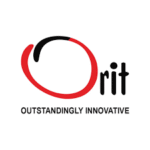Job Description
📊 Brandix: Data Analytics Roles Comparison
Both roles are based at the Brandix Centre – Colombo 03 and support the internal audit (R&C) and risk management functions.
| Feature | Graduate Trainee – Data Analytics | Executive – Data Analytics |
| Primary Goal | Data Generation & Deriving Critical Information | Developing Information-Driven Insights & Meaning from Complex Data |
| Key Responsibility Focus | Performing end-to-end data generation (identification to transformation). Deriving critical information using statistical methods/data analysis. | Responsible for developing reliable and data-driven business insights. Role holder will extract meaning from complex data relationships. |
| Experience Requirement | 1 year of relevant experience in data analytics. | 3 to 4+ years of relevant experience in data analytics in a large organization. |
| Core Responsibilities | * Carry out analytics for R&C internal audits and risk management. * Support SBEs/Functions with data analytics projects. * Support LRP initiatives (audit automation, continuous monitoring). | * Responsible for developing reliable data-driven business insights and inputs using data analytic tools. * Responsible for incorporating adequate, reliable, and valid analytics methodologies to ensure analytics-driven R&C audit process. * Support LRP initiatives (audit automation, continuous monitoring). |
| Entry Level | Entry-level role, likely focused on execution and learning the company’s data ecosystem. | Mid-level role, focused on driving insights, ensuring methodology validity, and more complex problem-solving. |
💡 Summary of Differences
- Experience: The most critical difference is the required experience: 1 year for the Trainee versus 3 to 4+ years for the Executive.
- Scope of Work: The Trainee role is primarily about performing data analysis and generation. The Executive role requires a higher level of autonomy, focusing on developing insights, ensuring validity of methodologies, and extracting meaning from complex data.
- Impact: The Executive role implies greater responsibility for translating raw data into reliable, actionable business insights that actively shape the R&C audit process.



